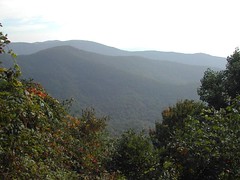Newsroom legacy info, researchers, Pulitzers and social network analysis
Quite a conglomeration of subjects. But, patience, there's method in my madness and a definite connection.
Derek Willis posts another of his brilliant essays on why newsrooms need to manage information better. In this one, Journalism Lost -- and Found, he deplores the tendency of newsrooms to discard information outside of the standard clip and photo archives. Oh, was this a bugbear of mine. Where was the company archive? The personnel archive? The collection of books and pamphlets written by staff? Project files from great projects, especially the prize-winning ones, discarded after their creators left? Oh, yes, some of that made its way into the filing cabinets, if it didn't take up too much room. But it was random at best.
The collective memory and intelligence of a newsroom staff is priceless and too much of it leaves when the individuals leave. Says Derek:
Grimaldi also discusses how the Post uses social network analysis, an amazing journalism tool not commonly used yet. Grimaldi learned about it from IRE/NICAR's Brant Houston, just a couple years back. On this topic, Blogger is highlighting a blog called Connectedness, with a post commenting on some of Grimaldi's work, including screenshots. Worth checking out.
Derek Willis posts another of his brilliant essays on why newsrooms need to manage information better. In this one, Journalism Lost -- and Found, he deplores the tendency of newsrooms to discard information outside of the standard clip and photo archives. Oh, was this a bugbear of mine. Where was the company archive? The personnel archive? The collection of books and pamphlets written by staff? Project files from great projects, especially the prize-winning ones, discarded after their creators left? Oh, yes, some of that made its way into the filing cabinets, if it didn't take up too much room. But it was random at best.
The collective memory and intelligence of a newsroom staff is priceless and too much of it leaves when the individuals leave. Says Derek:
...we are losing something when people with decades of experience and knowledge head towards retirement or another job.Along the way, Derek points to the Post newsroom Wikis mentioned in the Poynter article that came out a couple weeks ago, Lessons learned from the Pulitzers. In this article (and I can't believe I didn't read all the way down then), mention of the value of Post researchers, from James Grimaldi:
The worst part? We’re losing much more than we have to lose, if only newspapers acted upon the principal that its information is as valuable as its people. Oral history programs are good and necessary, but they serve few current journalistic purposes. What newspapers need, not just at buyout time but all the time, is a plan to capture as much information and expertise as they can during the tenure of its employees.
We have a crack research team and our work was bolstered in particular by the work of some of the best researchers at any newspaper in America -- Alice Crites, Lucy Shackelford, Derek Willis and Madonna Liebling.(Does it seem to you that news researchers are finally -- finally -- getting the credit they deserve?)
Grimaldi also discusses how the Post uses social network analysis, an amazing journalism tool not commonly used yet. Grimaldi learned about it from IRE/NICAR's Brant Houston, just a couple years back. On this topic, Blogger is highlighting a blog called Connectedness, with a post commenting on some of Grimaldi's work, including screenshots. Worth checking out.





0 Comments:
Post a Comment
<< Home